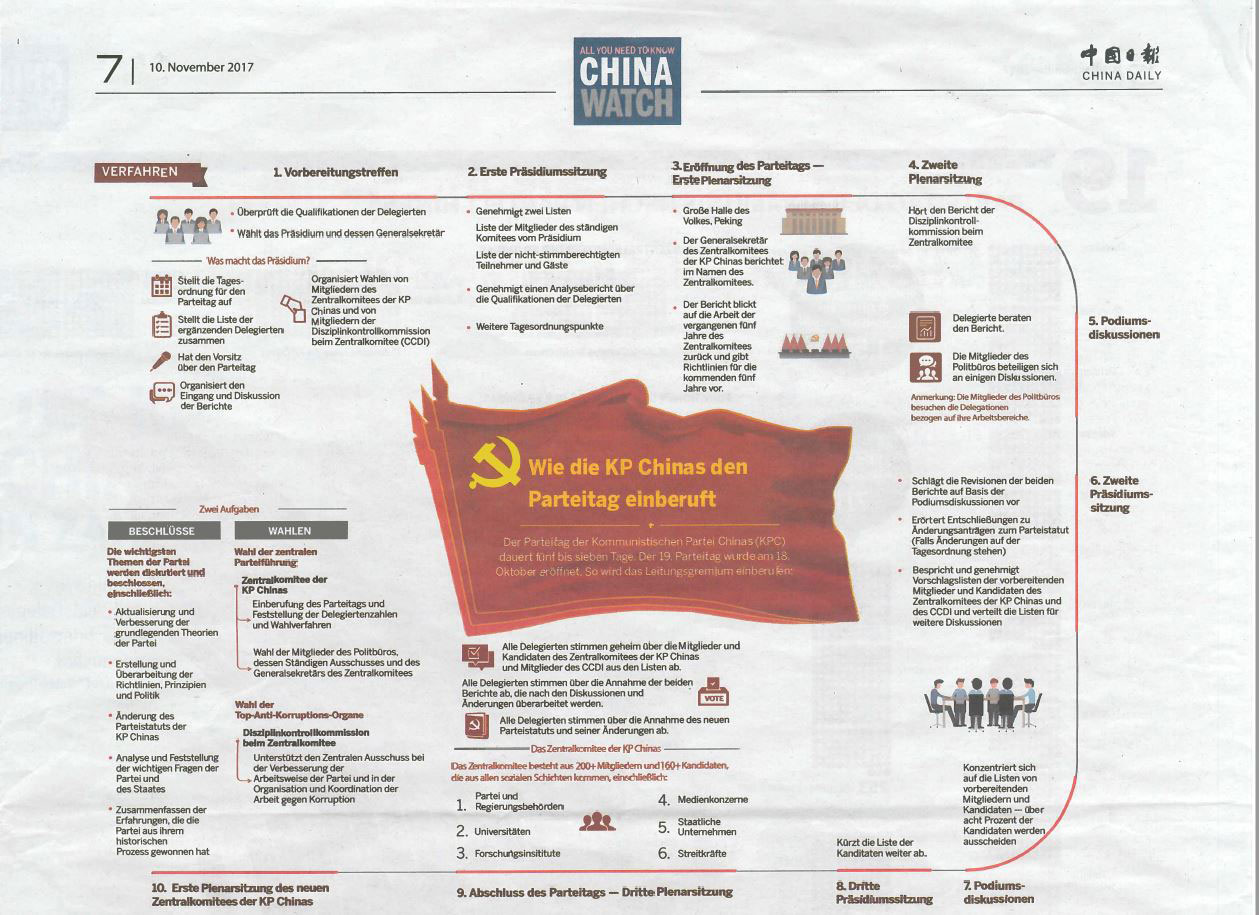
China Watch supplement explaining the workings of the Chinese Communist Party to the readers of the Süddeutsche Zeitung.
Furthermore, the executive board of the Süddeutsche Zeitung cannot provide any information about how much China Daily paid for advertising for which other papers take large six-figure sums annually. Given that the sixteen pages entitled “China Watch,” according to the executive director, henceforth will be published six times a year in the Süddeutsche Zeitung, it is clearly no small amount that China Daily will be transferring. At any rate, it will apparently be large enough for the executive board of the Süddeutsche Zeitung to abandon any concerns they had entertained about Russian advertising supplements not too long ago.
China invests strategically
China invests strategically and long-term, also and specifically in the field of media. For example, the Chinese state (or rather the controlling Communist Party) systematically advertises via a state media system conceived especially for prestigious Western newspapers. There have been supplements from China Daily in The New York Times, The Globe and Mail, The Telegraph, the Handelsblatt, Le Figaro, and Wall Street Journal, to name just a few.
The Communist Party of China stands only to gain. First, it successfully exploits the reach and reputation of these high-quality newspapers to cleverly spread its propaganda in seemingly apolitical articles to its Western readers and to obscure the reality of authoritarian China.
Secondly, the Communist Party is priming to undermine the independence of potentially financially weak publishing houses, particularly in small, economically fragile but stable countries. Who would have thought that we would find ourselves talking seriously about or facing the sad reality of censorship of the prestigious Cambridge University Press or the academic publishing house Springer?
Thirdly: even if Beijing’s leadership cannot entirely prevent critical reporting on China, it can continue its efforts to undermine the credibility of individual newspapers. It can inspire public debate about their independence, which can only be expected in an open society. Is it naïve to assume that readers are not reading articles that are “China-friendly” or “optimistic about China” because they assume that seven-figure payments might be making their way from Beijing to Munich?
It is scandalous that highly regarded Western media are risking credibility over advertising from authoritarian states. The Süddeutsche Zeitung should no longer publish “China Watch.”
